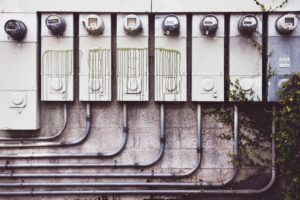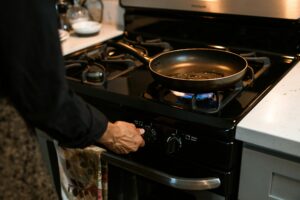*This blog post is for informational purposes only – for plumbing problems in your home contact a licensed plumber.
You may not think about your home plumbing every day, but it’s an essential system for your daily life. However, for this intricate network of pipes and valves to keep everything flowing smoothly, plumbing maintenance is essential. After all, a plumbing mishap could quickly turn your dream home into a nightmare.
How To Prevent a Blockage
To prevent a blocked drain in your home’s plumbing system, proactive maintenance practices include the following.
- Regularly clean your drains. This involves removing any hair, food particles, or other debris that can accumulate and cause blockages.
- Use a mixture of hot water and vinegar to flush out your drains, or invest in a drain-cleaning product specifically designed for this purpose.
- Be mindful of what you put down your drains. Avoid pouring grease, oil, or coffee grounds down the sink, as these can solidify and create stubborn clogs.
Maintaining Your Water Heater
Regular maintenance of your water heater will ensure the optimal performance and longevity of your plumbing system – as well as preventing potential issues and saving on costly repairs.
- Regularly flush the water heater to remove sediment buildup. Over time, sediment can accumulate at the bottom of the tank, reducing its efficiency and causing it to work harder.
- Inspect the pressure relief valve and test the temperature settings regularly to ensure safety and efficiency.
- Troubleshoot your water heater promptly if you encounter any problems such as leaks, inadequate hot water, or unusual noises. It’s best to consult a professional residential plumber to address these issues and ensure the optimal functioning of your water heater.
Inspect and Identify Water Leaks
Water leaks can occur due to various reasons, such as corrosion, worn-out fittings or high water pressure.
Inspect your plumbing system regularly for any signs of leaks to prevent water damage and potential water wastage. Here are some essential steps to help identify water leaks:
- Start by checking for visible leaks around the water heater or pipes. Look for any drips, puddles, or wet spots.
- Inspect the area around the water heater or pipes for signs of water damage, such as mould or mildew growth.
- Use a flashlight to inspect hidden areas, such as the back of your water heater or taps, and the surrounding pipes, for any signs of moisture.
- Check the pressure relief valve for leaks. This valve is typically located on the top or side of the water heater and helps release excess pressure.
- If you identify any leaks, turn off the water supply and call a professional plumber to fix the leak.
Need a Professional Plumber?
If you encounter any of the above plumbing issues, contact SJK Collective, your local plumber across Brisbane. We offer the following plumbing services:
- Clearing blocked drains
- Drain repair and replacement
- Bilge pump installation, repair, service and replacement
- Fixing leaks of all varieties
- Tap, toilet, dishwasher and fridge installations
- Water efficiency audits
- Plumbing inspections for property sales
- Plumbing maintenance for homes and business
- Hospitality plumbing for pubs, clubs, cafes and restaurants
- Hot water system installation, repair, service and replacement
- Heat pump installation, repair, service and replacement



